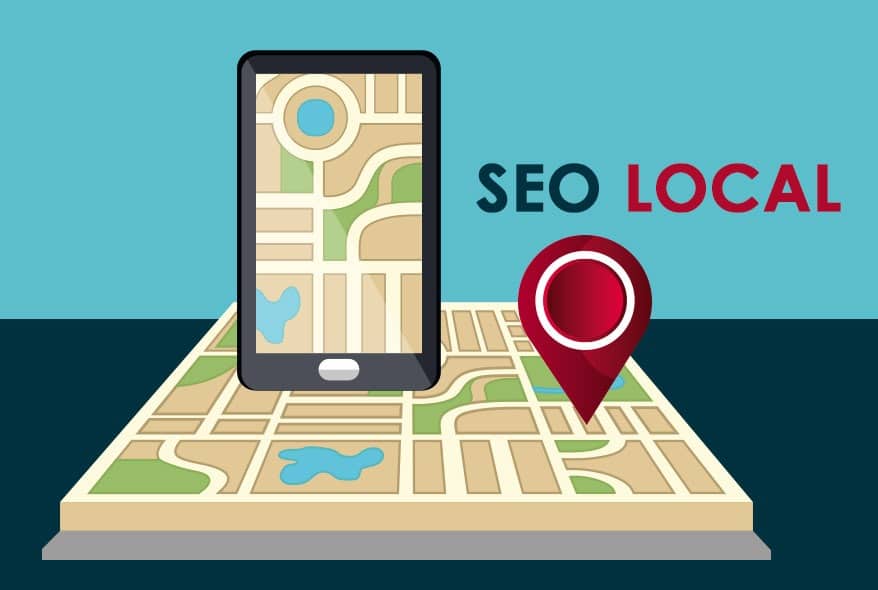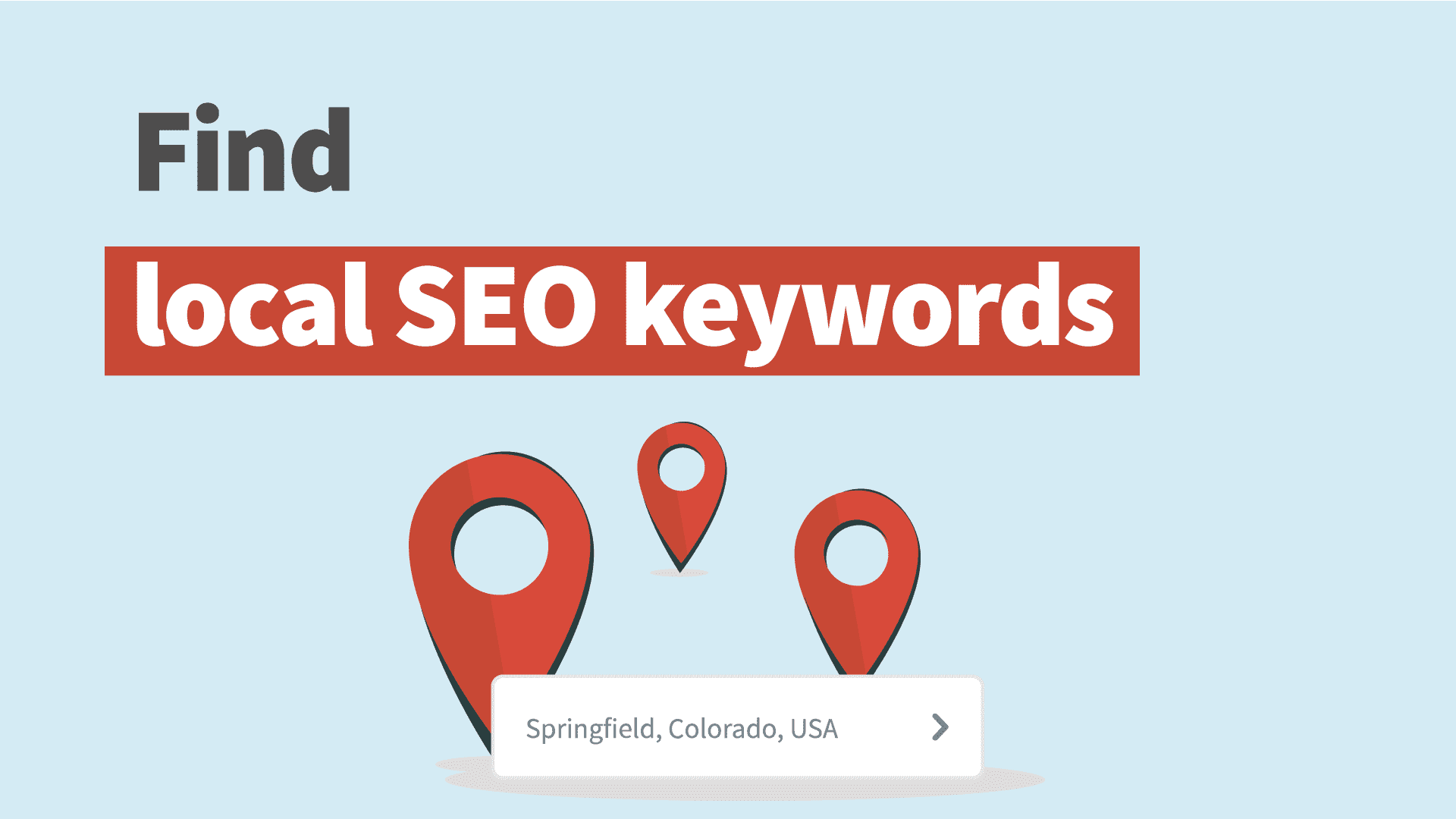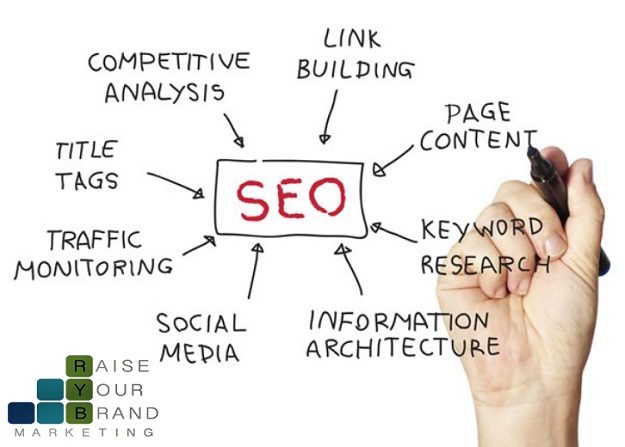Local SEO Strategies for Service-Based Businesses | Boost Your Local Rankings
What is Local SEO for Service-Based Businesses?
Imagine you’re a small business owner running a neighborhood plumbing service. You know your craft inside and out—whether it’s fixing a leaky faucet or handling a full-scale pipe replacement, you’ve got it covered. But as skilled as you are, there’s a problem: when people in your town search for a plumber online, your business isn’t showing up. You’re losing potential customers to competitors, and it feels like all your hard work is going unnoticed.
This is where search engine optimization tailored for local audiences comes into play.
Local SEO, or Local Search Engine Optimization, is all about making sure your business is visible when potential customers search for services like yours in their area. It’s like a digital handshake between you and your community. If done right, it can transform your business from being virtually invisible online to becoming the go-to service provider in your area.
For service-based businesses—whether you’re a plumber, a landscaper, or a home cleaning service—this strategy is crucial. Unlike retail businesses with physical products, your services are often bound by geography. You’re not just competing with businesses nationwide; you’re competing with the plumber down the street or the lawn care company a few blocks over. SEO services helps level the playing field by ensuring that your business pops up in search results, putting you directly in front of customers who need your services right now.
Let me share a quick story to illustrate. A few years ago, I worked with a nearby HVAC contractor who was struggling with visibility online. Despite being one of the most experienced professionals in the area, his phone wasn’t ringing as often as it should. By implementing a tailored strategy—optimizing his website, claiming his Google Business Profile, and focusing on keywords related to his location—his business saw a dramatic increase in inquiries. In just six months, he went from barely making it to needing to hire additional staff to handle the demand. That’s the power of a focused local strategy.
In this article, I’ll walk you through proven strategies that can help service-based businesses like yours improve your visibility in search results, attract more customers, and ultimately grow your business. Whether you’re new to this or looking to refine your existing strategy, these insights will guide you in the right direction.
Understanding the Essentials of Local SEO for Service-Based Businesses
Defining Local SEO
Optimizing for local search is more than just another buzzword; it’s a critical tool for service-based businesses that want to stand out in their markets. Think of it as the digital equivalent of placing your business on the map—not just any map, but the one your potential customers are using when they search for the services you provide. If you’re not optimized for this, you could be losing out on a significant number of potential customers who are actively looking for services like yours right in your area.
In simple terms, local search optimization focuses on enhancing your online presence to attract more business from relevant searches. These searches take place on Google and other search engines, but they’re also happening on platforms like Yelp, Facebook, and Apple Maps. This approach helps ensure that when someone in your area searches for a service you offer, your business is one of the first they see.

For service-based businesses, optimizing for local searches is especially important because your customers are usually nearby. Unlike eCommerce businesses that can serve customers across the globe, your customer base is more localized. Whether you’re a plumber, a landscaper, or a pest control service, your clients are likely within a certain radius of your physical location. This strategy helps you connect with these clients, ensuring that your business appears in the search results when they’re looking for the services you offer.
Why is Local SEO for Small Businesses Important?
Now, you might be wondering, “Why should I invest time and resources into this strategy?” Let me answer that with another story.
A lawn care company I once worked with was struggling to get noticed. Despite excellent services and strong word-of-mouth, they weren’t getting as many calls or leads as they should. The issue? Their online presence was virtually non-existent. They weren’t showing up in search results, and their competitors were reaping the benefits. By implementing a targeted optimization strategy, we were able to turn things around.
We started by optimizing their website with location-based keywords, making sure their Google Business Profile was claimed, up-to-date, and fully optimized, and ensuring their business information was consistent across all online directories. The results were astounding: their website traffic increased by 150%, and they saw a significant uptick in inquiries. Customers who previously didn’t even know they existed were now calling them for quotes.
This is why this type of SEO is so vital for small businesses. It’s not just about getting more traffic; it’s about attracting the right kind of traffic—customers who are in your area, looking for exactly what you offer. This approach helps you cut through the noise and connect with these potential customers at the precise moment they’re ready to make a decision.
In a world where more and more people are turning to their phones to find services, ignoring these optimizations is like leaving money on the table. By focusing on this type of SEO, you’re not just boosting your online visibility—you’re building trust and establishing your business as a reliable option within your community. And in the end, that’s what will keep customers coming back and recommending you to others.
Proven Strategies to Improve Local Search Visibility
Claim Your Google Business Profile
One of the most effective ways to improve your visibility in local search is by claiming and optimizing your Google Business Profile (GBP). This is your business’s virtual storefront on Google, and it’s often the first thing potential customers see when they search for your services. Imagine it as a digital billboard that provides essential information about your business—like your address, hours, services, and contact details—right when people need it most.

When I was working with a roofing company in the area, they were getting frustrated because their competitors were appearing in the Google Maps pack while they were nowhere to be found. The issue? They hadn’t claimed their Google Business Profile. Once we claimed and optimized their profile, including adding relevant keywords, high-quality photos, and accurate business information, their visibility skyrocketed. Within weeks, they started appearing in the Google Maps pack, which led to a noticeable increase in calls and inquiries.
To claim your Google Business Profile, start by going to the Google Business Profile Manager. From there, follow the prompts to verify your business. Once verified, you can begin optimizing your profile by:
- Adding Complete Business Information: Make sure your business name, address, phone number, and hours are accurate and consistent with the information on your website and other directories.
- Selecting the Right Business Categories: Choose categories that best represent your business. This helps Google understand what your business does and match you with relevant searches.
- Uploading High-Quality Photos: Images can significantly impact how potential customers perceive your business. Upload professional photos of your work, your team, and your location.
- Encouraging Customer Reviews: Reviews play a crucial role in search rankings. Encourage satisfied customers to leave positive reviews, and be sure to respond to them—this not only boosts your ranking but also builds trust with potential customers.
By optimizing your Google Business Profile, you’re setting your business up to be easily found by those searching for your services. It’s a straightforward yet powerful step in boosting your visibility.
Optimize Your Website for Local Keywords
Once your Google Business Profile is optimized, the next step is to ensure your website is fully optimized for location-specific keywords. This means integrating phrases related to your service area into your site’s content, titles, and metadata. For example, if you’re a plumber in Pittsburgh, you’ll want to use keywords like “Pittsburgh plumbing services” or “emergency plumber in Pittsburgh” throughout your website.
When working with a pest control company, we focused on optimizing their service pages with location-specific keywords. We didn’t just stuff the keywords everywhere—Google’s smarter than that, and it can actually hurt your rankings. Instead, we naturally incorporated these keywords into headings, descriptions, and image alt texts. We also created dedicated landing pages for each of the specific areas they served, which helped target those hyper-local searches.

Here’s how you can optimize your website for these keywords:
- Conduct Keyword Research: Use tools like Google Keyword Planner or Ahrefs to identify popular search terms in your area related to your services.
- Create Location-Based Content: Develop blog posts, service pages, and other content that focuses on your specific location. For instance, a blog post titled “Top 5 Plumbing Issues in Pittsburgh Homes” would resonate with homeowners in the area.
- Optimize Metadata: Make sure your title tags, meta descriptions, and headers include these keywords. This not only helps with rankings but also makes your listings more appealing to searchers.
- Use Structured Data Markup: Implement local business schema markup on your site to provide search engines with additional details about your business, such as your address, operating hours, and services.
Optimizing for these keywords ensures that your website is tailored to attract visitors from your target area. It’s about making sure that when someone searches for the services you offer, in the area you serve, your business is the one that pops up first.
How Do I Rank Higher?
Ranking higher in local search is all about consistency and authority. The strategies mentioned above—claiming your Google Business Profile and optimizing your website—are foundational. But to really climb the local search rankings, you need to focus on two additional key areas: citations and reviews.
Citations are online mentions of your business’s name, address, and phone number (NAP). These can be on business directories, websites, or social platforms. The more consistent your NAP information is across the web, the better your performance in local search will be. For instance, ensure that your business information is identical across Yelp, Facebook, Yellow Pages, and any other relevant directories. Inconsistent information can confuse search engines and hurt your rankings.
When I worked with a cleaning service, they had different addresses listed across various directories, which was hurting their search rankings. We corrected all the inconsistencies, and their rankings started improving almost immediately. It’s a simple but often overlooked aspect.
Reviews, or reputation management are another critical factor in your digital marketing. Positive reviews not only build trust with potential customers but also signal to Google that your business is reputable and worthy of a higher ranking. Encourage your happy customers to leave reviews on your Google Business Profile, and don’t forget to respond to them. Engaging with your customers shows that you care and helps build a community around your brand.
Ranking higher in local search is a continuous process. It’s not just about setting up once and forgetting it; you need to regularly monitor your online presence, engage with your audience, and adapt to changes in search algorithms. By focusing on these strategies, you’ll be well on your way to dominating your local market.
On-Page SEO Strategies for Service-Based Businesses
SEO for Local Service-Based Businesses: Earn Higher Rankings
On-page SEO is like laying the foundation for a house—it’s essential for everything else to stand on. When it comes to local SEO strategies, on-page optimization ensures that your website is not only visible but also relevant to local searches. This involves fine-tuning every aspect of your site, from title tags to content, so that search engines recognize its value to users in your area.
One crucial step is optimizing your title tags, meta descriptions, and headers with local keywords. For instance, if you run a landscaping business in Pittsburgh, your title tag might read, “Top Pittsburgh Landscaping Services | [Your Business Name].” This immediately signals to search engines—and potential customers—what your page is about and where you’re located.

Beyond just keywords, make sure your website is mobile-friendly. More than half of local searches happen on mobile devices, so your site needs to load quickly and look great on a small screen. When I helped a local HVAC company optimize their website, we focused on improving mobile usability. We ensured the site loaded in under three seconds and that all important information was easily accessible on a smartphone. The result? A 40% increase in mobile traffic within three months.
Finally, don’t forget about internal linking. By linking to other relevant pages on your site—like from a blog post to a service page—you help search engines understand the structure of your site and guide users to more information, which can boost your rankings.
Creating Location-Based Pages
For service-based businesses, creating location-based pages can be a game-changer. These are individual pages on your website dedicated to the specific areas you serve, each optimized for local search terms. For example, if you’re a pest control company that serves multiple towns, you might have a page for “Pest Control in Pittsburgh,” another for “Pest Control in Greensburg,” and so on.
When I worked with a lawn care company, we created location-based pages for every major town in their service area. Each page included localized content, testimonials from customers in that area, and clear calls to action tailored to those specific communities. This not only improved their local search rankings but also made it easier for potential customers to find relevant information about services in their area.
Here’s how you can create effective location-based pages:
- Unique Content: Avoid duplicating content across location pages. Each page should have unique, relevant content that speaks directly to the residents of that area.
- Local Keywords: Use geo keywords specific to each location, such as “emergency plumber in [Town Name].”
- Customer Testimonials: Include testimonials from customers in each area to build trust and credibility.
Local Links: Whenever possible, include links to nearby organizations, events, or resources relevant to that area. This not only provides value to your readers but can also help with local SEO.
How to Optimize My Website?
Optimizing your website requires a combination of technical know-how and strategic thinking. One advanced tactic is implementing structured data markup, also known as schema markup. This is a type of code you add to your website design that helps search engines understand the content better. For local businesses, the most relevant schema is the LocalBusiness schema, which provides search engines with detailed information about your business, including your address, hours, and services.
When we implemented schema markup for a local plumbing service, their visibility in the search results improved noticeably. Google was able to display their business information more prominently, including in the rich snippets that appear at the top of some search results pages.

To implement schema markup, you can use tools like Google’s Structured Data Markup Helper, which guides you through the process. Once you’ve added the code to your website, test it with Google’s Rich Results Test to ensure everything is working correctly.
By taking these steps, you ensure that your website is not only optimized for local search but also fully understood by search engines, which can significantly improve your chances of ranking higher.
Building a Winning Content Strategy
What is the Local SEO Strategy for 2024?
As we move into 2024, local SEO is evolving, with new trends and technologies shaping how companies can connect with local customers. One of the biggest trends is the rise of voice search. More people are using devices like Siri and Alexa to find local services, often using natural, conversational language. This means that optimizing for voice search should be a key part of your strategy.
For instance, instead of focusing solely on short, keyword-rich phrases, consider optimizing for longer, more natural-sounding queries like “Who’s the best landscaper near me?” or “Where can I find emergency plumbing services in Pittsburgh?” By incorporating these types of phrases into your content, you can better capture voice search traffic.
Another trend is the increased use of AI tools for personalization. Google’s algorithms are becoming more sophisticated, often delivering personalized search results based on the user’s behavior and preferences. This means that creating high-quality, relevant content that addresses the specific needs and pain points of your local audience is more important than ever.
How to Create a Winning Content Strategy?
Creating a successful content strategy involves more than just adding keywords to your blog posts. It’s about building a comprehensive approach that positions your business as an authority in your area.
Start by developing content that speaks directly to your local audience. This could include blog posts about local events, guides on dealing with common problems in your area (like “How to Protect Your Home from Pittsburgh Winters”), or customer success stories that highlight the impact of your services.
For example, when I worked with a local roofing company, we created a series of blog posts that addressed common roofing issues specific to the region. These posts not only attracted local homeowners but also established the company as a knowledgeable and trustworthy provider.
In addition to regular blog content, consider creating video content, as it’s becoming increasingly popular in search results. Videos showcasing your services, introducing your team, or providing tutorials can help you connect with your audience on a more personal level.
Lastly, don’t forget to repurpose your content. A single blog post can be turned into a video, a series of social media posts, or even an infographic. This not only maximizes your content’s reach but also ensures that you’re engaging with your audience across multiple platforms.
Off-Page SEO Tactics to Boost Local Business Presence
Building Local Backlinks
Off-page SEO is just as important as on-page optimization. One of the most effective off-page tactics is building local backlinks—links from other local businesses, organizations, or media outlets to your website. These links signal to search engines that your business is a trusted part of the local community, which can boost your rankings.
For instance, when I helped a local landscaping company improve their site with Pittsburgh SEO services, we focused on getting backlinks from local home improvement blogs, gardening clubs, and even the local newspaper. These backlinks not only improved their search rankings but also drove targeted traffic to their website.

To build local backlinks, start by identifying potential partners in your area—local bloggers, businesses, and media outlets. Reach out to them with collaboration ideas, such as guest blog posts, joint promotions, or sponsorship opportunities. The goal is to create mutually beneficial relationships that result in valuable backlinks.
Are Backlinks Important?
Absolutely. Backlinks are one of the top-ranking factors in Google’s algorithm. They’re essentially votes of confidence from other websites, telling search engines that your website is trustworthy and authoritative. But not all backlinks are created equal—local backlinks from reputable local sources carry more weight for than generic backlinks from unrelated sites.
When building backlinks, focus on quality over quantity. A few high-quality local backlinks can have a much bigger impact than dozens of low-quality ones. And always ensure that the sites linking to you are relevant to your industry and location.
Leveraging Online Reviews
Online reviews are another powerful off-page SEO factor. Positive reviews not only influence potential customers but also play a significant role in how Google ranks your business in local search results. Businesses with a high volume of positive reviews are more likely to appear in the coveted Google Maps pack.
Encourage your satisfied customers to leave reviews on your Google Business Profile, Yelp, or other relevant platforms. And don’t just collect reviews—engage with them. Responding to reviews, both positive and negative, shows that you value customer feedback and are committed to providing excellent service.
For example, when working with a local dentist, we made it a priority to request reviews from happy patients after each visit. This not only helped improve their local rankings but also built a stronger online reputation that attracted more patients.
Measuring Success: Key Metrics for Performance
What is the Best Local SEO Factor?
Success in local SEO isn’t just about getting more traffic—it’s about attracting the right traffic and turning those visitors into customers. To measure the effectiveness of your efforts, focus on key metrics like organic traffic, conversion rates, and local pack visibility.
Organic Traffic: Track the number of visitors coming to your site from local search queries. Tools like Google Analytics can provide detailed insights into where your traffic is coming from and which pages are performing the best.
Conversion Rates: It’s not enough to just get visitors to your site—you need to convert them into customers. Monitor how many of your visitors are taking action, whether it’s filling out a contact form, making a purchase, analysis of your marketing or calling your business. If your conversion rates are low, consider optimizing your calls to action or improving the user experience on your site.
Local Pack Visibility: Keep an eye on how often your business appears in the local pack (the top three results displayed in Google Maps). Tools like BrightLocal can help you track your local rankings and identify areas for improvement.
By regularly monitoring these metrics, you can gain valuable insights into what’s working and what needs adjustment, ensuring that your strategy continues to drive results.
How Do You Optimize for Local SEO?
The best local SEO solutions are an ongoing process that requires regular attention and adaptation. Keep your Google Business Profile updated, consistently publish high-quality, locally-focused content, and actively build local backlinks and reviews. By staying proactive and responsive to changes in algorithms, you can maintain and even improve your local rankings over time.
Additional Tips for Local Service Companies
3+ SEO Tips for Local Service Companies
Here are a few quick tips to give your efforts an extra boost:
- Optimize for Voice Search: As mentioned earlier, more people are using voice search to find local services. Optimize your content for natural language queries to capture this growing segment of traffic.
- Use Local Business Directories: Ensure your business is listed in as many relevant local directories as possible, and keep your information consistent across all of them.
- Create Video Content: Videos are increasingly favored by both users and search engines. Create videos that showcase your services, provide tutorials, or share customer testimonials.
- Engage on Social Media: Social media platforms are another avenue for boosting your website. Share content that is relevant to your local audience, and engage with followers to build a strong community around your brand.

Challenges and Solutions
Overcoming Common Challenges
Local SEO comes with its own set of challenges, but with the right strategies, these can be overcome. For example, managing multiple locations can be tricky, especially if you’re trying to maintain consistent NAP information across all directories. One solution is to use tools like Moz Local or Yext, which help automate and manage your local listings.
Another common challenge is dealing with negative reviews. While it’s impossible to avoid them entirely, how you respond can make a big difference. Always address negative reviews professionally and try to resolve the issues raised. This not only shows potential customers that you care but can also turn a negative experience into a positive one.
By staying proactive and addressing challenges head-on, you can ensure that your efforts remain effective and continue to deliver results.
Case Studies: Success Stories
Examples of Successful Campaigns
Real-life examples can be incredibly powerful in illustrating the effectiveness of this. For instance, a local roofing company I worked with was struggling to get leads. By implementing a comprehensive strategy that included optimizing their Google Business Profile, creating location-based pages, and building local backlinks, we were able to significantly increase their online visibility. Within six months, they saw a 200% increase in online leads, which translated directly into more business.
Another example is a pest control company that wanted to expand its service area. We developed location-specific content and optimized their website for each new area they entered. As a result, they quickly began ranking for local terms in those areas, leading to a steady stream of new customers.
These case studies highlight the power of local SEO in driving tangible business results. Whether you’re looking to increase visibility, attract more leads, or expand into new markets, a well-executed strategy can make all the difference.
How Can Local SEO for Service-Area Businesses Benefit Your Company?
If you’re running a service-area business, local SEO is one of the most effective ways to reach your target audience. By focusing on optimizing your online presence geographically, you can ensure that your business is seen by the people who are most likely to need your services. This can lead to more inquiries, more customers, and ultimately, more revenue.
Invest in Local SEO for Small Businesses to Capture More Business and Revenue Growth
If you’re serious about growing your business and capturing more local customers, it’s time to invest in local SEO. Whether you’re just getting started or looking to refine your existing strategy, the right approach can transform your online presence and drive significant business growth.
I invite you to take the next step—reach out for a free local SEO consultation. Let’s discuss how we can tailor an SEO services strategy that’s right for your business, so you can start seeing the results you deserve.
Your customers are searching for services like yours right now—let’s make sure they find you.

FAQ: Frequently Asked Questions About Local SEO for Service-Based Businesses
What is the best strategy for local SEO?
The best strategy involves a combination of optimizing your Google Business Profile, creating location-specific content, building local backlinks, and encouraging customer reviews. Consistency and staying updated with the latest SEO trends are key to maintaining a strong local presence.
How do I attract local customers?
Attracting local customers can be achieved by optimizing your website for nearby terms, maintaining a strong presence on local business directories, and engaging with your community on social media. Offering promotions and encouraging word-of-mouth referrals are also effective strategies.
How do you dominate local SEO?
To dominate, focus on consistently producing high-quality, locally relevant content, maintaining accurate and consistent business information across all online platforms, and actively managing customer reviews. Regularly updating your SEO strategies based on performance metrics and algorithm changes is also crucial.
How to do local SEO for beginners?
Beginners can start by claiming and optimizing their Google Business Profile, ensuring their website is mobile-friendly and optimized for local keywords, and listing their business in local directories. Engaging with customers through reviews and social media is also essential.
Is local SEO effective?
Yes, it is highly effective for service-based businesses that rely on local customers. It helps improve visibility in SERPs, driving more targeted traffic to your website and increasing the likelihood of converting visitors into customers.
What are local SEO strategies?
These strategies are techniques used to optimize a business’s online presence to attract more business from relevant local searches. These strategies include optimizing for local keywords, managing online reviews, building local backlinks, and ensuring consistent business information across all online directories.
Topics of Interest
How to Optimize Google My Business for Service Providers
One of the most critical elements is optimizing your Google Business Profile. Learn how to optimize Google My Business for service providers with our step-by-step guide, which will help you maximize your profile’s potential and improve your local search presence.
Local SEO Tips for Service-Based Small Businesses
For small service-based businesses, this can be a game-changer. Discover actionable local SEO tips for service-based small businesses to help you get discovered locally and stand out among your competitors.
Local SEO for Multi-Location Service Businesses
Managing SEO for multiple locations can be challenging, but with the right approach, you can dominate every location. Explore effective strategies in local SEO for multi-location service businesses to ensure consistent visibility across all your business locations.
Local SEO Best Practices for Service Providers
Implementing best practices is crucial for enhancing your local reach. Our guide on local SEO best practices for service providers will help you apply the fundamentals to improve your online presence and attract more local customers.
Advanced Local SEO Techniques for Service Businesses
Ready to take your website to the next level? Our guide on advanced local SEO techniques for service businesses offers insights into more sophisticated strategies that can help you outrank your competitors and achieve superior results.
Local SEO Guide for Service-Based Entrepreneurs
Whether you’re just starting or looking to refine your approach, our local SEO guide for service-based entrepreneurs provides a comprehensive roadmap to grow your local presence and measure the ROI of your efforts.
How to Improve Local Rankings for Service-Based Businesses
Boosting your local rankings requires a deep understanding of ranking factors and practical implementation. Learn how to improve local rankings for service-based businesses with proven methods that deliver results.
Local SEO Content Strategies for Service Providers
Content plays a pivotal role. Discover effective local SEO content strategies for service providers to create engaging, locally relevant content that converts visitors into customers.
Local SEO Audit Checklist for Service Businesses
Regular audits are essential to maintaining your site performance. Use our local SEO audit checklist for service businesses to identify and fix common issues, ensuring your business remains competitive.
How to Build Local Citations for Service-Based Businesses
Building local citations is key to boosting your local authority. Follow our guide on how to build local citations for service-based businesses to enhance your visibility and credibility.
Mobile Optimization Tips for Local SEO in Service Industries
With mobile searches on the rise, optimizing your site for mobile is crucial. Learn the best mobile optimization tips for local SEO in service industries to ensure your business reaches more customers on the go.
How to Manage Online Reviews for Local Service Businesses
Online reviews play a significant role in building trust and visibility. Our guide on how to manage online reviews for local service businesses offers best practices for soliciting and managing customer feedback effectively.
Voice Search Optimization for Local Service-Based Businesses
As voice search continues to grow, optimizing your business for voice queries is more important than ever. Learn voice search optimization for local service-based businesses to stay ahead of the curve and capture more local leads.
Local SEO for Service-Based Startups
For startups, establishing a strong local presence is critical. Our guide on local SEO for service-based startups provides budget-friendly strategies to help you scale your efforts as your business grows.
